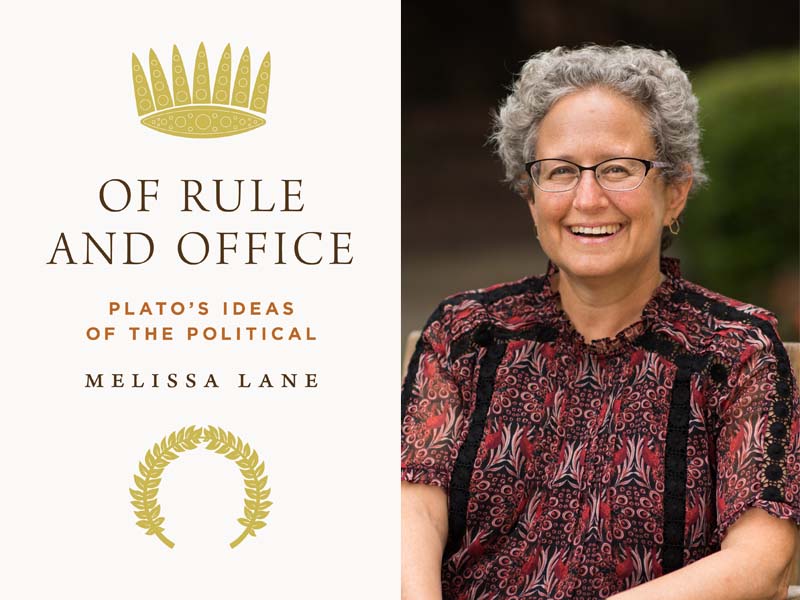Melissa Lane is Class of 1943 Professor of Politics and Director of the University Center for Human Values. Her book “Of Rule and Office: Plato’s Ideas of the Political” will be published June 20, 2023 by Princeton University Press.
How did you get the idea for this project?
Just over ten years ago, I was embarking on a book project on Plato on the rule of knowledge. In the course of that year, I realized that whereas I had assumed (with most scholars) that all the action on that topic would be about the “knowledge” part of that formula, in fact Plato has a great deal to say about the nature of “rule”: that is, the taxis (order) through which any given political telos (goal or aim) can be achieved. And a year later, as a participant in a summer reading group on Plato’s Republic Book 8, I realized that the vocabulary and syntax denoting “officeholding” in Greek practices—which is a variant of the same vocabulary used to denote “ruling”—was central to Plato’s account there of a constitutional oligarchy. I began to wonder: how did Plato himself distinguish between rule and office, which were so close semantically for him and his contemporaries? Were his ideas about rule actually developed in close dialogue with the ideas and practices of his contemporaries about officeholding, understood as a constitutionally limited and accountable kind of rule?
How has your project developed or changed throughout the research and writing process?
The project first crystallized in the series of six Carlyle Lectures, titled Constitutions before Constitutionalism: Classical Greek Ideas of Office and Rule, which I delivered at the University of Oxford in 2018. Three of those lectures developed Greek ideas of rule and office contextually, the other three treated certain aspects of Plato’s Republic in that light, but not its core account of an ideal political constitution itself. As I sat down to revise the lectures for publication, I worked through the dialogue one more time and found the language of officeholding used of its philosopher-rulers—when they go down into the “cave” of the city to rule between ages 35-50—hiding in plain sight. The book thus expanded to feature two new chapters on how offices and rule interact in the core ideal constitution of the Republic, as well as two chapters on other key Platonic dialogues (Statesman and Laws) showing Plato’s sensitivity to rule and office therein, and four thematic chapters on the ways in which rule and office are central to Plato’s writing, to ideas of anarchy and tyranny, and to the relationship between law, freedom, and friendship.
What questions for future investigation has the project sparked?
The role of law in Plato’s thinking about politics is under-explored. I have a graduate student, Jiseob Yoon, writing a thesis about this now. I am myself working on a new and related project on the role of the Greek lawgiver in ancient and subsequent thought and in animating political theorizing.
Why should people read this book?
I show Plato to have been a constitutionalist thinker, not only in describing second-best or flawed regimes, but also and fundamentally in developing an account of how ruling can better achieve the good of the ruled. That is the recognized aim of constitutionally limited and accountable officeholding both in his time and in our own. Working through its vulnerabilities as well as its values, and exploring alternative ways that such an aim can be achieved, provides a new perspective on the challenges of politics as well as on reading Plato.
Learn more about other publications by Princeton University faculty in the humanities by exploring our Faculty Bookshelf.
















